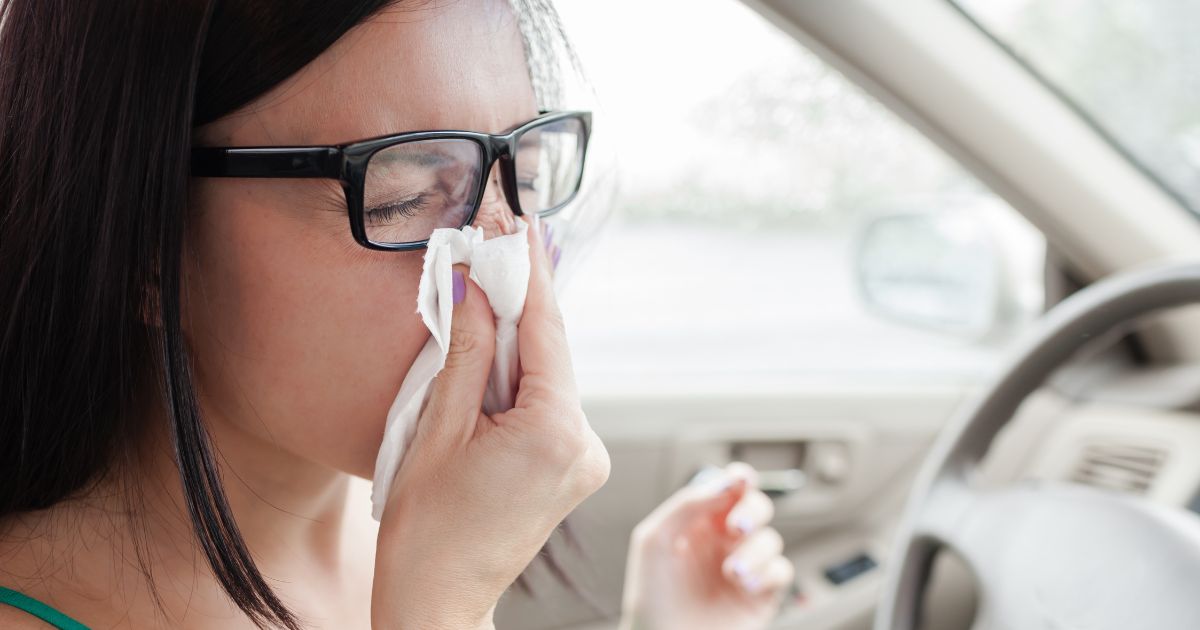Driving while sick is a common but often underestimated risk with severe consequences. When you are unwell, your physical and mental abilities are compromised, making you less alert and more prone to errors on the road.
Driving while sick is dangerous and can adversely affect your health and the safety of others, and you may even face legal consequences if you get into a car accident. Some of the dangers of driving while ill include:
- Impaired reaction time: When you are sick, your reaction time can be significantly slower. Your body is fighting off an illness, and you may feel fatigued, weak, or dizzy. Impaired reaction time can lead to delayed braking, inability to swerve in emergencies, or slow response to changing road conditions. These factors increase the risk of accidents.
- Decreased concentration: Illness often comes with a foggy mind, making it challenging to concentrate on the task. This can lead to distracted driving, as your thoughts wander and your attention drifts from the road. Distraction is a leading cause of accidents and can have serious consequences for you and other road users.
- Reduced coordination: Sickness can cause muscle weakness and loss of physical coordination. This weakness can lead to difficulty operating the vehicle, including properly steering, braking, and accelerating. Reduced coordination may also impair your ability to maintain control in adverse weather conditions.
- Impaired vision and hearing: Sickness can affect your senses, particularly vision and hearing. For example, if you have a fever, your vision may be blurry, and your hearing may be impaired due to congestion. Impaired senses can reduce your ability to identify potential dangers on the road and react appropriately.
- Medication side effects: Many sick individuals take over-the-counter or prescription medications, which can have side effects like drowsiness, dizziness, or blurred vision. These side effects can make it dangerous to operate a vehicle, as they can mimic the symptoms of impairment from alcohol or drugs.
- Pedestrians and cyclists: Driving while sick not only endangers you but also poses a significant risk to vulnerable road users, including pedestrians, cyclists, and motorcyclists. Reduced alertness and slower reaction times increase the likelihood of accidents.
- Spreading illness: Driving while sick also poses a public health risk, especially during a pandemic or when contagious illnesses are prevalent. You risk spreading your illness to others, which can have far-reaching consequences. Your actions can lead to community transmission if you have a highly contagious disease like COVID-19.
Safety Tips for Driving While Sick
If you must drive while sick, you can take some necessary precautions to minimize the risks:
- Assess your condition: Honestly evaluate your ability to drive. If you feel too unwell or impaired, consider alternative transportation options or delay your journey.
- Limit distractions: Minimize distractions in the vehicle. Focus on the road and avoid using a mobile phone or other distracting activities.
- Stay hydrated: Dehydration and fatigue can exacerbate the effects of illness. Ensure you are well-rested and adequately hydrated before getting behind the wheel.
- Avoid side effects: Be aware of the potential side effects of any medications you take. If they impair your ability to drive safely, find an alternative way to reach your destination.
Media Car Accident Lawyers at Eckell Sparks Help Accident Victims Injured by Ill or Sick Drivers
If a negligent or ill driver has injured you, discuss your case with our Media car accident lawyers at Eckell, Sparks, Levy, Auerbach, Monte, Sloane, Matthews & Auslander, P.C. Call us today at 610-565-3701 or fill out our online form for an initial consultation. Located in Media and West Chester, Pennsylvania, we proudly serve clients in Delaware County, Chester County, and Montgomery County.

